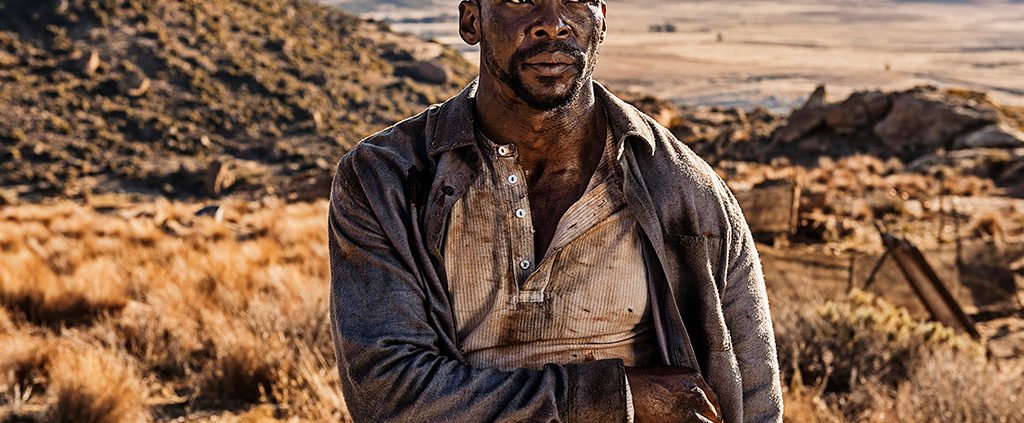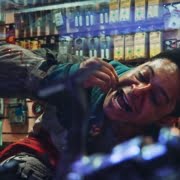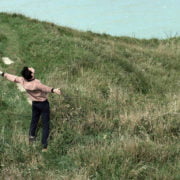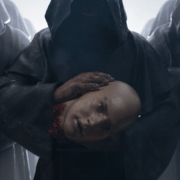Breaking News : VARIETY // Film Review: ‘Five Fingers for Marseilles’
Film Review: ‘Five Fingers for Marseilles’
An imaginative commingling of Spaghetti Western elements and post-Apartheid South African melodrama.
Two decades later, Tau (played as an adult by Vuyo Dabula) is a notorious outlaw who has earned every bit of his bad reputation. Released from prison after serving hard time for robbery, he attempts to turn over a new leaf by renouncing violence and returning home to Marseilles. Unfortunately, very much like the traditional Western gunslingers who repeatedly vowed to hang up their pistols and go back to their roots, Tau finds himself unable to follow through on his good intentions.
For a long time, Tau tries to stay out of trouble and keep a low profile, even as he discovers telltale signs that, after the end of Apartheid and the overthrow of white oppressors, newly empowered black locals — including some of his erstwhile comrades — are posing a different sort of threat to the community.
Bongani (Kenneth Nkosi), once a member of Tau’s inner circle, has become mayor with promises of career opportunities and civic improvements for the citizenry of what now is known as New Marseilles. And, who knows, he might actually do more good than harm if his plans pan out. But to maintain power, and his comfortable lifestyle, he’s made deals with two devils: Luyanda (Mduduzi Mabaso), a former Five Finger rebel who grew up to be the town’s brutish police chief; and Sepoko (Hamilton Dhlamini), aka Ghost, a raspy voiced, flamboyantly villainous gangster who really doesn’t need the permission he’s been granted by Bongani to take what he wants from the town.
Tau would prefer to steer clear of the bad guys. But a man’s got to do what a man’s got to do, especially when he’s prodded by Lerato (Zethu Dlomo), an old friend and implied romantic interest, and her young son, Sizwe (Lizwi Vilakazi), who’s all too eager to view Tau as a role model. “You don’t want to be anything like me,” Tau warns the boy. But, of course, he does. And his desire has consequences.
“Five Fingers of Marseilles” was filmed on location in and around the North-Eastern Cape village of Lady Gray — Shaun Harley Lee’s vigorous and evocative lensing ranks high among the film’s selling points. But the terrain will be instantly familiar to audiences as the sort of harsh frontier setting where Sergio Leone and Sergio Carbucci once had rugged antiheroes clash with gaggles of tough customers. Bad men bestride this movie-informed landscape with guns on their hips and, in many cases, cowboy hats (or reasonable facsimiles thereof) on their heads. (There are even horses on view now and then.)
Dabula is able to bring humanizing shadings of character — guilt, regret, moral outrage — to what is essentially a South African variation of Clint Eastwood’s Man With No Name. But he also rises to the occasion as a near-superhuman hero when Matthews and Drummond go full Spaghetti Western, most notably in a scene where Tau somehow survives sadistic torture as resiliently as Eastwood’s taciturn bounty hunter (or Franco Nero’s Django) ever did.
Beyond all the Western allusions and evocations, the film commands attention with a deliberately paced and well-observed story that focuses on, among other things, the inescapable influence of the past and the unavoidable corruption spawned by ambition. (Meet the new bosses, arguably worse than the old bosses.) When everything in a movie seems geared to trigger a climax straight out of “The Good, the Bad and the Ugly,” however, it’s easy to be distracted from the meatier issues. On the other hand, “Five Fingers for Marseilles” is no less satisfying for being almost too entertaining for its own good.












Leave a Reply
Want to join the discussion?Feel free to contribute!